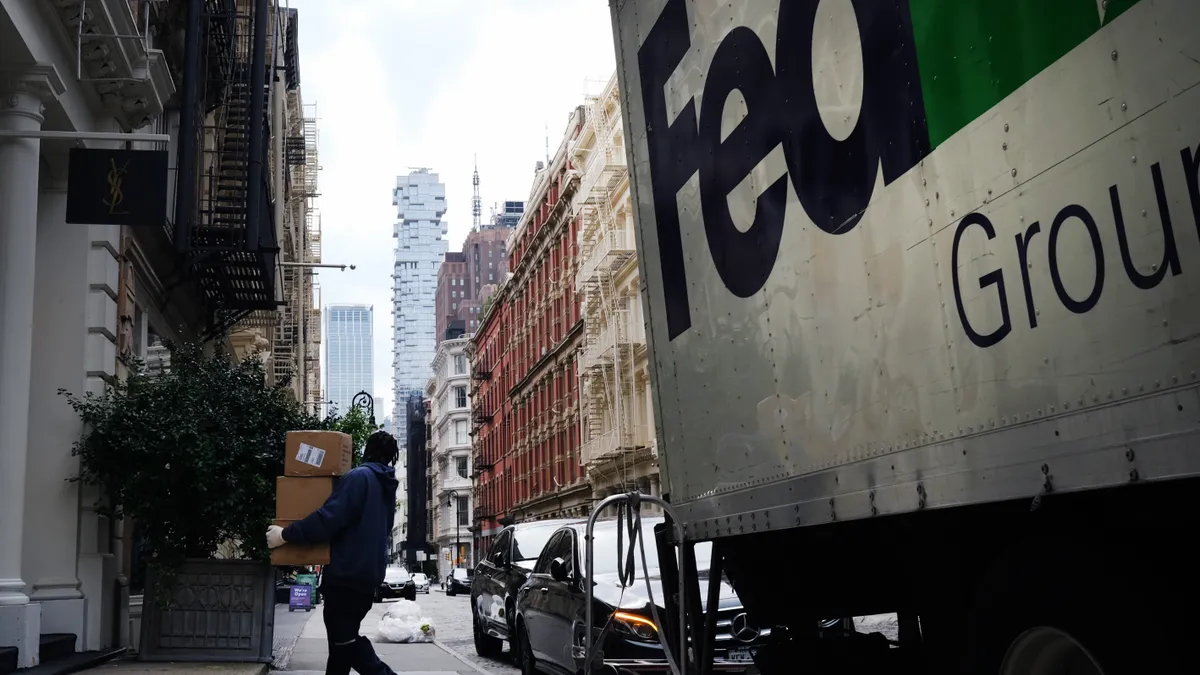Dive Brief:
- FedEx didn't see any material benefit from ongoing UPS labor negotiations in its most recent quarter, and the company isn't planning on seeing any soon, EVP and Chief Customer Officer Brie Carere said Tuesday.
- "What I can tell you is that this has opened a lot of doors," Carere said on an earnings call. "We're having a lot of great conversations with legacy UPS customers, and we feel really good about the sales pipeline because of the strong value proposition we have versus our primary competitor."
- UPS workers with the International Brotherhood of Teamsters recently voted in favor of allowing union leaders to call a strike if a national contract agreement isn't reached by July 31. UPS is fighting to keep concerned shippers from taking their volume elsewhere, in part by having executives assigned to retain top customers.
Dive Insight:
FedEx would certainly welcome a volume boost as it continues to weather a decline in demand. The company's revenue fell 10% YoY for the quarter ending May 31, and average daily package volumes declined at both its Express and Ground units.
At least for now, relief isn't coming from strike-fearing UPS shippers. The FedEx rival and the Teamsters have been making progress in negotiations, with tentative agreements reached on all non-economic issues on Tuesday.
But the key external factors that will determine how FedEx fares in fiscal year 2024, which began June 1, go far beyond UPS' labor negotiations. CFO Mike Lenz said these factors include economic activity in North America, Europe and Transpacific trade, inventory restocking and e-commerce activity.
"We do expect external business conditions to remain challenging near term, and there remains significant uncertainty with respect to the timing of demand recovery, particularly in the back half of our fiscal year," said Lenz, who is retiring effective July 31.
FedEx is in the midst of overhauling its network to be more flexible and efficient, which will help it better match supply to whatever the demand environment is in the future. The company expects to realize $1.8 billion in cost savings from its wide-ranging DRIVE program in FY 2024, per an investor presentation.
FedEx is also trimming overlap between its separate networks via "Network 2.0" and consolidating its Express and Ground units into one organization. President and CEO Raj Subramaniam said the upcoming integration of Ground operations into Express in Canada will be the first large-scale implementation of Network 2.0 when it commences in April 2024.
Not all markets will follow a Ground-into-Express approach, however. In some markets, deliveries will be made by contracted service providers as a continuation of the Ground operating model. In others, deliveries will be made by FedEx-employed couriers like the current Express model calls for.
"This is unique to Canada, because we're going to take a market-to-market approach in the United States," Subramaniam said.















